Report: Meta Connect 2025 | When AI Glasses Demos Go Terribly Wrong
Meta Connect 2025 was supposed to be Meta's biggest moment to show the world that AI glasses were finally ready for everyone. Instead, it became a perfect example of what happens when high-tech demos meet reality on a live stage.
Mark Zuckerberg and his team promised revolutionary Meta AI glasses that would change how we use technology, but the event turned into an awkward showcase of failed demonstrations and technical problems.
The company unveiled three new models of smart glasses during the event, each designed for different types of users. They also introduced a neural wristband that was supposed to read your thoughts and control the glasses without speaking or touching anything. On paper, these Ray-Ban Meta glasses looked amazing. In practice, everything went wrong in front of thousands of viewers watching online.
Executive Summary
Meta Connect 2025 was intended to showcase Meta's breakthrough in AI-powered smart glasses but became notable for multiple technical failures during live demonstrations. The event revealed both ambitious technological concepts and significant execution challenges.
Product Announcements
Meta unveiled three smart glasses models:
- Ray-Ban Meta Glasses ($379): Enhanced AI assistant, 3K video recording, doubled battery life, conversation focus technology
- Oakley Meta Vanguard ($499): Sports-focused design with IP67 waterproofing, 122-degree field of view, Garmin integration
- Ray-Ban Display Glasses ($799): First high-resolution display in AI glasses, neural wristband control, 42 pixels per degree sharpness
Major Demo Failures
Two critical demonstrations failed publicly:
- Cooking Demo: Meta AI assistant provided confusing, incomplete instructions during a Korean steak sauce preparation, repeatedly failing to respond appropriately to chef's questions
- Neural Wristband Demo: Multiple attempts to accept video calls using wrist gestures completely failed, requiring CTO intervention and visible frustration from CEO Mark Zuckerberg
Privacy Concerns
Significant privacy issues:
- Glasses can record secretly with disableable LED indicators
- Always-listening microphones for "Hey Meta" wake word
- Voice recordings stored on Meta servers for up to one year by default
- Automatic use of photos/videos for AI model training
- Removal of user opt-out options for data collection
Market Reception
Negative Reactions:
- Viral mockery on social media platforms
- Tech experts described software as "half-baked"
- High prices deemed deterrent for mainstream adoption
- Privacy advocates labeled devices "surveillance machines"
Positive Responses:
- Some users praised revolutionary wristband concept
- Recognition of breakthrough potential in thought-controlled computing
- Acknowledgment of ambitious vision despite execution problems
Meta's Three New Models AI Glasses Reveal
Before everything went wrong, Meta actually had some impressive products to announce. The company showed three different models of smart glasses, each targeting different types of users. On paper, these devices promised to bring AI assistance right to your face in ways never seen before.
Next-Generation Ray-Ban Meta Glasses
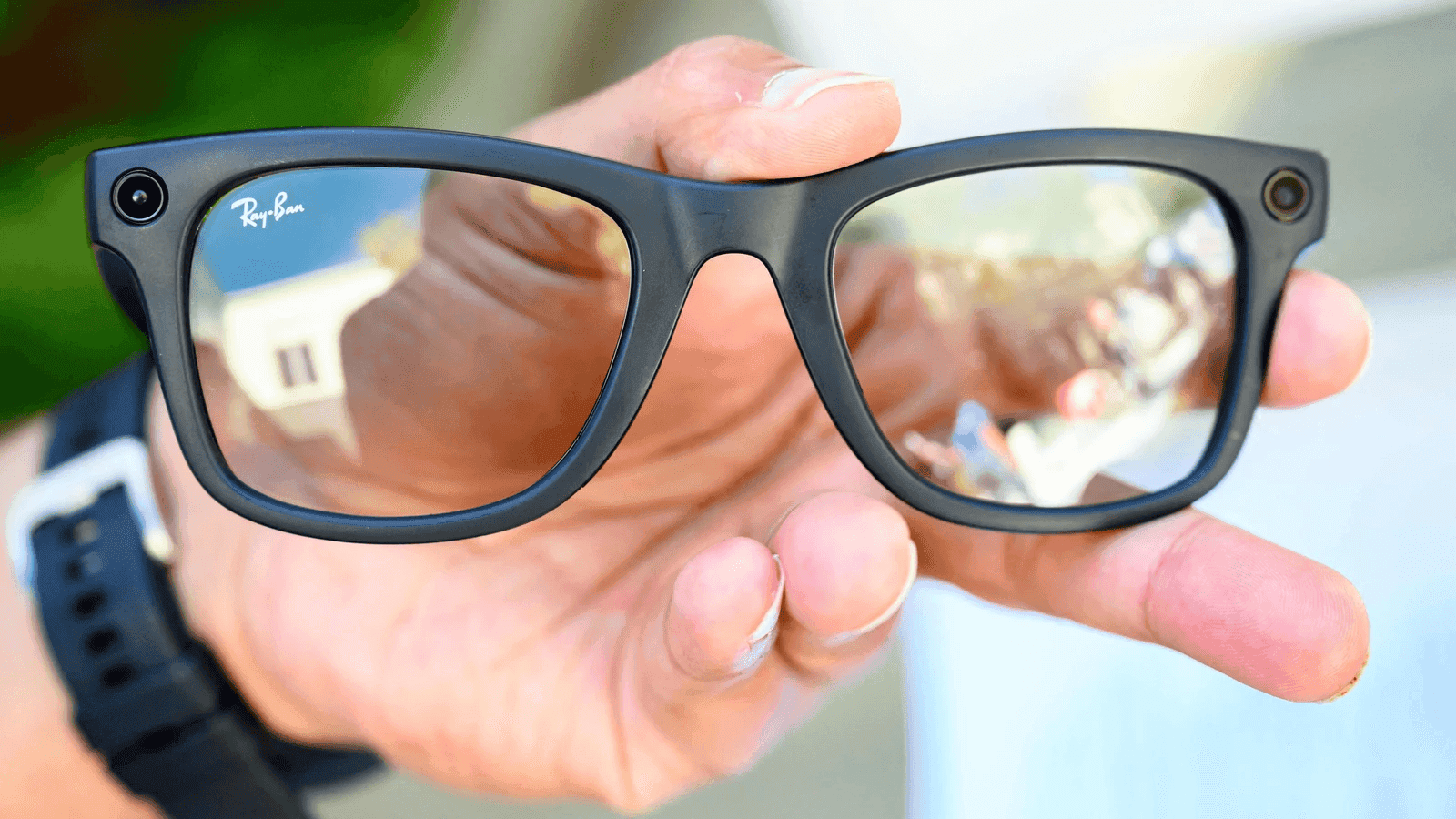
Meta updated their popular Ray-Ban smart glasses with better AI features and improved battery performance. These glasses look like regular Ray-Ban sunglasses but pack advanced technology inside. The company doubled the battery life compared to previous models and upgraded the camera to record 3K video for sharper, clearer footage.
The standout new feature is called "conversation focus," which uses AI to amplify your friends' voices in noisy places like restaurants or crowded events. The Meta AI assistant also got smarter and can now run continuously for about one to two hours instead of just responding to single questions.
Key features include:
- Double the battery life of previous Ray-Ban Meta glasses
- 3K video recording with improved image quality
- Conversation focus technology for better hearing in noise
- Enhanced Meta AI assistant with longer active sessions
- Same stylish Ray-Ban design that doesn't look obviously tech-heavy
- Starting price of $379 with availability from the launch date
Oakley Meta Vanguard Sports Glasses
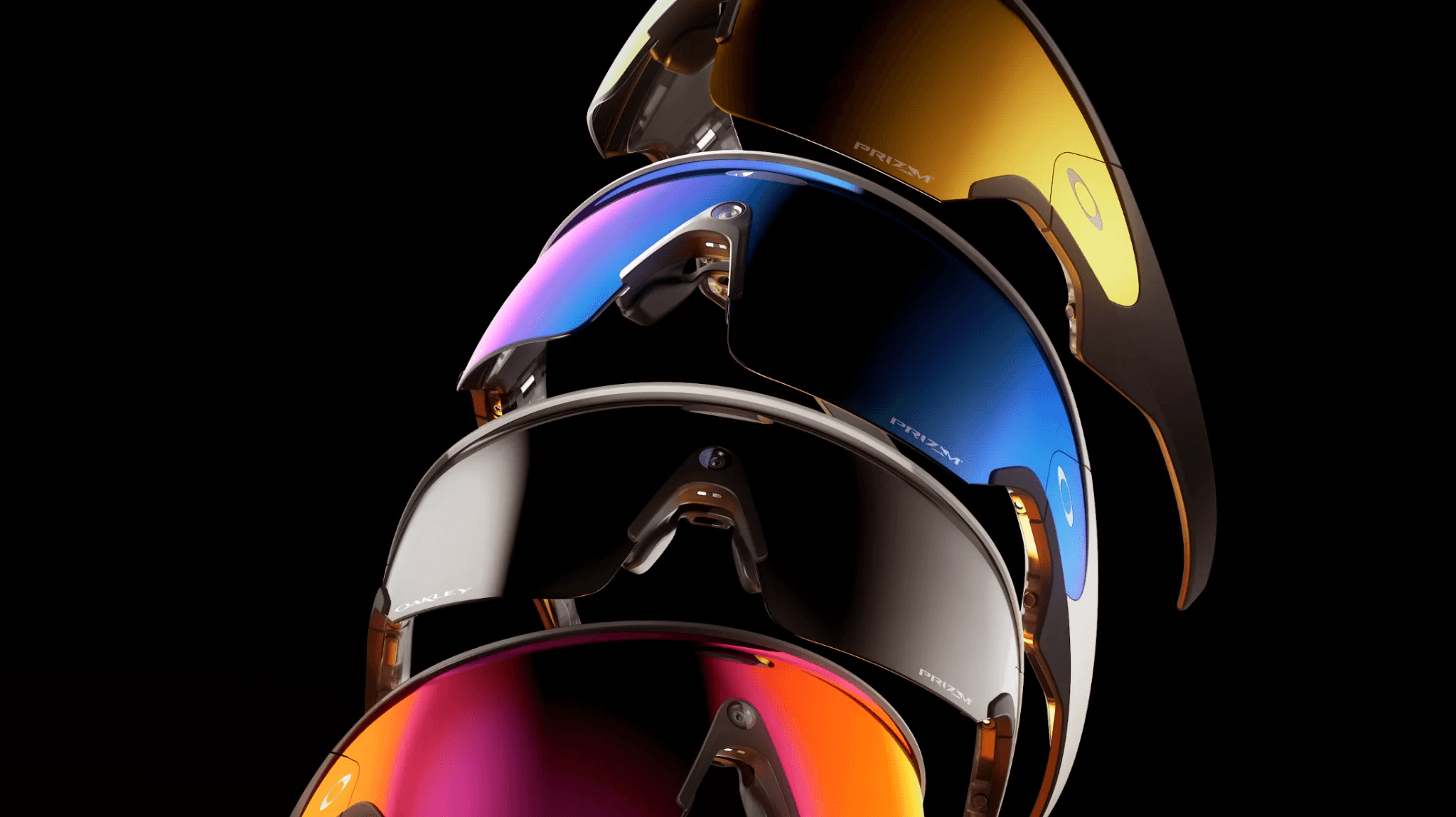
The Oakley Meta Vanguard targets athletes and outdoor enthusiasts who need rugged smart glasses that can handle extreme conditions. These glasses feature the most powerful speakers Meta has ever put in smart glasses, with six decibels louder audio than previous Oakley models.
The camera sits perfectly centered for better shot alignment and offers a wider 122-degree field of view to capture more action. Video stabilization keeps footage smooth even during intense activities like mountain biking or trail running. Advanced wind noise reduction ensures clear audio calls even in challenging weather conditions.
Performance features include:
- IP67 waterproof rating for swimming and water sports
- Centered camera with 122-degree wide field of view
- Video stabilization for smooth action footage
- Integration with Garmin devices for automatic video capture
- LED lights that flash to keep you on pace during workouts
- Swappable Oakley Prism lenses for different lighting conditions
- Priced at $499 with pre-orders starting immediately
Ray-Ban Display Glasses with Neural Wristband
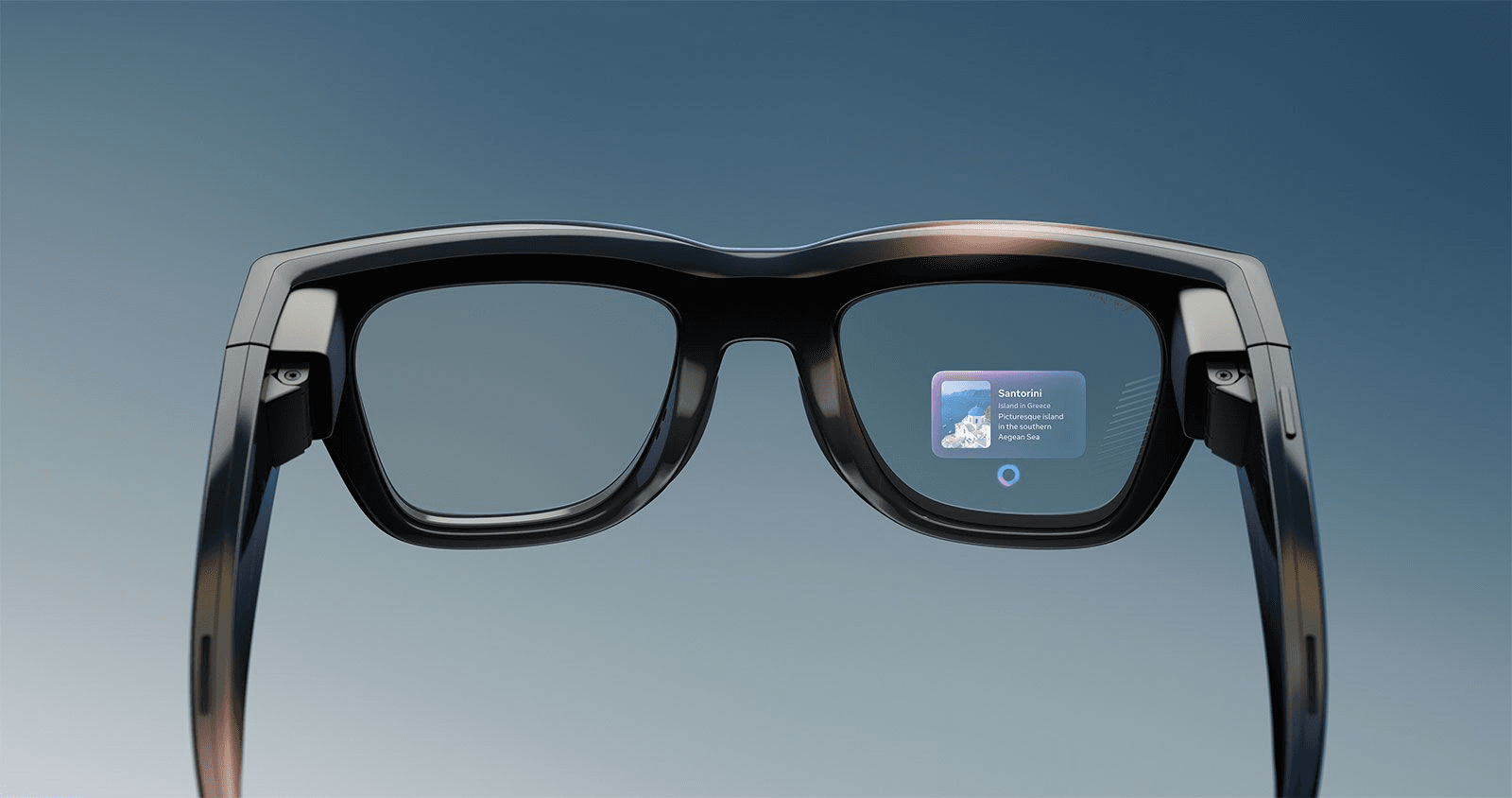
The premium Ray-Ban Display glasses are Meta's most ambitious smart glasses yet. These feature the first high-resolution display in AI glasses, showing information directly in your vision without blocking your view. The display appears in one eye slightly off-center and disappears when not needed.
The revolutionary neural wristband reads tiny muscle movements from your brain to control the glasses silently. Users can make video calls, send messages, play music, and adjust volume using barely noticeable wrist gestures. Zuckerberg claimed he could type 30 words per minute using this thought-controlled interface.
Premium features include:
- High-resolution display with 42 pixels per degree sharpness
- Up to 5,000 nits brightness for outdoor visibility
- Neural wristband for silent gesture control
- 18-hour battery life on the wristband
- Water-resistant design for daily use
- Transition lenses that adapt to indoor and outdoor lighting
- Complete package priced at $799 with September 30th availability
The Revolutionary Neural Wristband
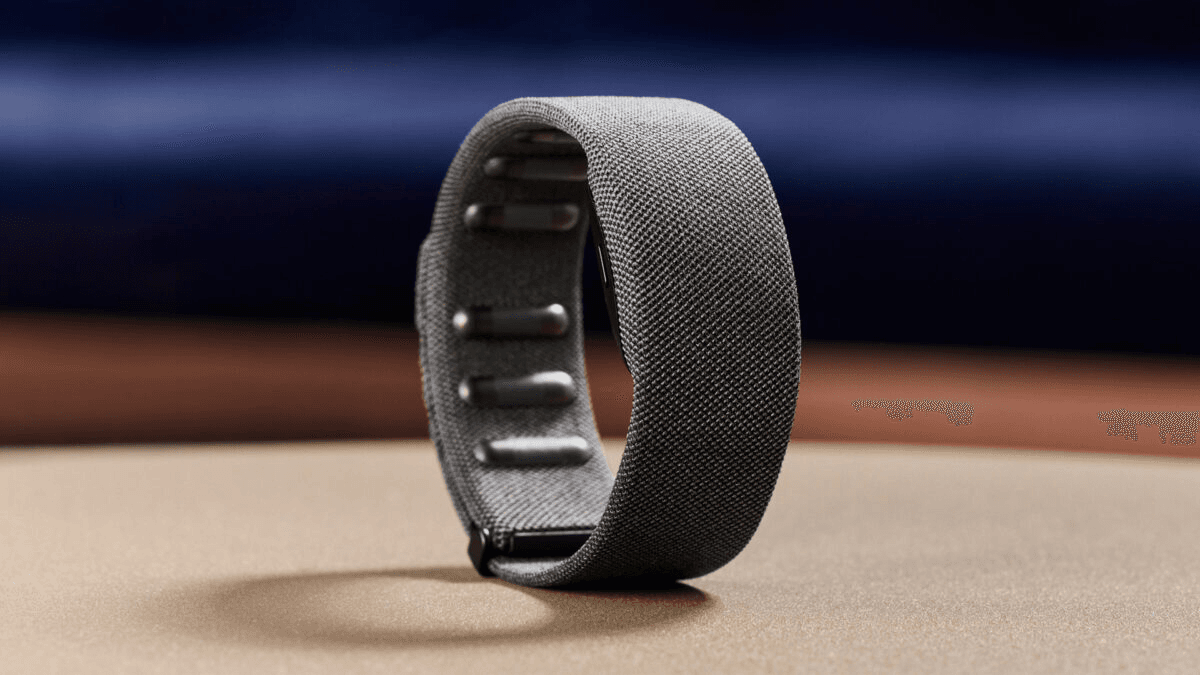
The most exciting announcement was the neural wristband, a device that could supposedly read tiny muscle movements from your brain. Meta claimed this technology would let users control their glasses silently without speaking or touching anything.
The wristband was supposed to detect the electrical signals your brain sends to your muscles, even when those movements are barely noticeable. Mark Zuckerberg said he could type about 30 words per minute using just these tiny wrist movements. Users could make video calls, send messages, play music, and control volume all through thought-like gestures.
This technology seemed like science fiction becoming reality. The idea that you could interact with computers just by thinking about moving your fingers was revolutionary. If it worked properly, it could solve many of the problems people have with voice commands in public spaces.
When Live Demos Fall Apart
Live demonstrations are the moment of truth for any tech product. They're supposed to show that the technology works smoothly in real conditions. For Meta's AI glasses, these demos were meant to prove that the future of computing had arrived. Instead, they revealed just how far the technology still needs to go.
The Cooking Demo Disaster
The first major failure happened during a cooking demonstration. Chef Jack Mancuso was supposed to use the Meta AI assistant to help make a Korean steak sauce. The AI was meant to see what ingredients were available through the glasses' camera and provide step-by-step cooking instructions.
The demonstration quickly turned awkward when the Meta AI assistant started giving confusing and incomplete instructions. The AI would tell the chef to do something, then skip important steps, or repeat the same information without actually helping. Chef Mancuso had to keep asking "What do I do first?" multiple times, but the AI couldn't provide useful guidance.
The cooking demo highlighted several problems with the AI assistant:
- Voice recognition was slow and unreliable
- The AI couldn't understand the context of what was happening
- Instructions were vague and not helpful for actual cooking
- The system couldn't handle follow-up questions properly
Mark Zuckerberg tried to blame the problems on bad WiFi, saying "the WiFi might be messed up." However, many viewers weren't convinced that internet problems could explain why the AI seemed so confused about basic cooking steps. The excuse felt weak compared to the obvious software issues.
Neural Wristband Video Call Failures
The second major disaster happened when Zuckerberg tried to demonstrate the neural wristband by accepting video calls using only wrist gestures. This was supposed to be the highlight of the presentation, showing how revolutionary thought-controlled computing could be.
Instead, the demonstration became increasingly uncomfortable to watch. Zuckerberg tried multiple times to accept incoming video calls by making subtle wrist movements, but nothing happened. The calls kept failing to connect, and the wristband gestures did absolutely nothing.
Key problems with the neural wristband demo included:
- Complete failure to recognize any gestures during the live presentation
- Multiple failed attempts with no successful connections
- Visible frustration from Zuckerberg as he kept trying
- Need for Meta CTO Andrew Bosworth to come on stage and help
Zuckerberg admitted his frustration during the demo, saying "I keep on messing this up" and "I don't know what to tell you guys." Bosworth tried to help by joking "This WiFi is brutal," but even with assistance, they couldn't get the wristband to work properly.
The Privacy Problem Everyone's Talking About
Beyond the technical problems, Meta's AI glasses sparked serious concerns about privacy and surveillance. Unlike previous wearable failures that just disappointed users, these glasses made people worried about being secretly recorded. The privacy issues became almost as big a story as the failed demos.
Secret Recording Capabilities
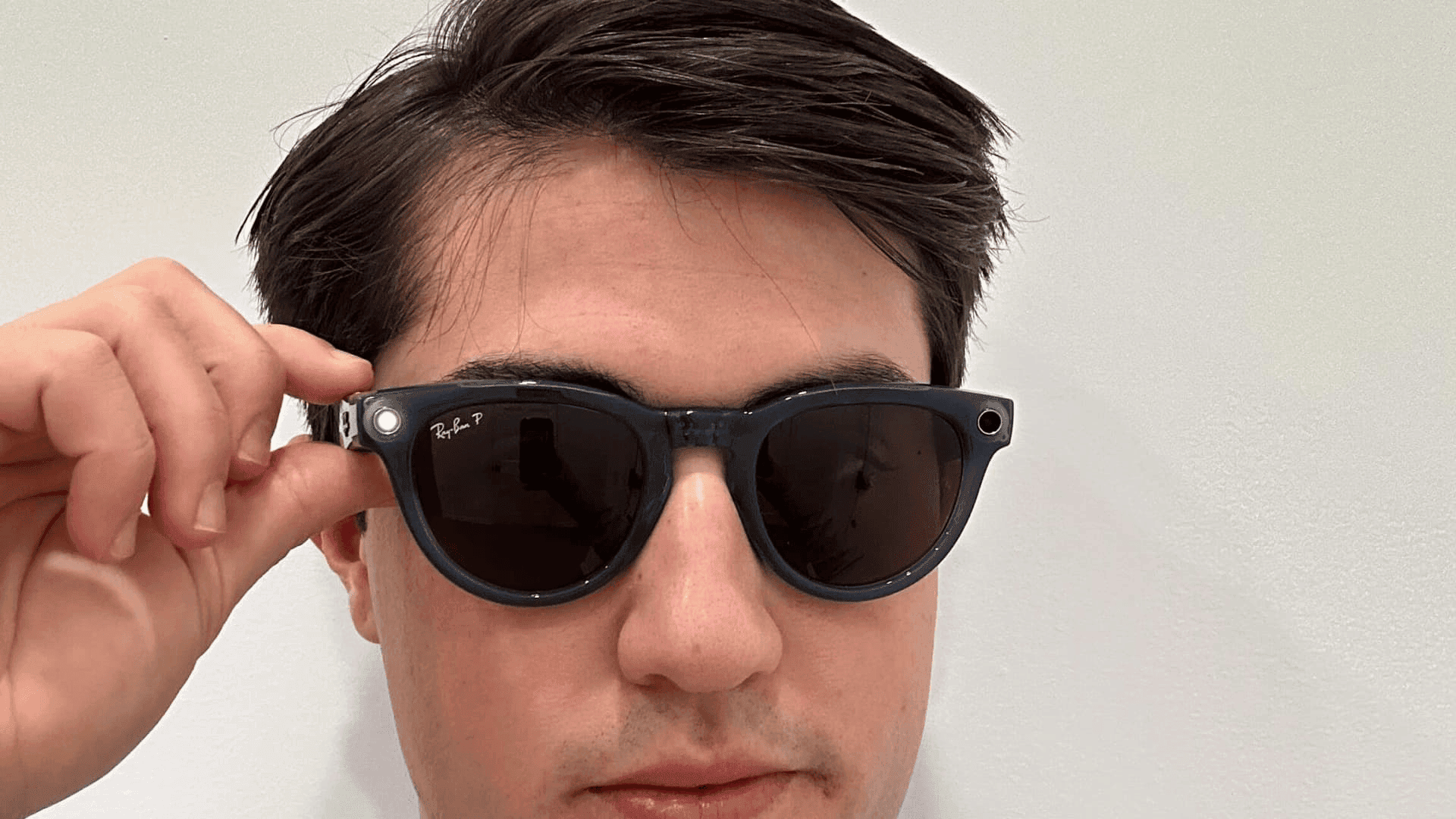
The glasses look almost identical to regular Ray-Ban sunglasses, which makes it nearly impossible for other people to tell when they're being recorded. While the glasses do have a small LED light that's supposed to indicate recording, users discovered this light could be easily disabled or covered up.
This invisible recording capability created several concerning situations:
- People felt uncomfortable not knowing when they might be filmed
- The glasses could record in private spaces like bathrooms or changing rooms
- Unlike phone cameras, there's no obvious way to tell recording is happening
- Social media stories emerged of people feeling watched and violated
One viral story involved a woman who felt "jarred" when she realized her spa aesthetician was wearing Meta glasses during a treatment. Even though the worker claimed the glasses were off, the customer had no way to verify this and felt her privacy might have been violated.
Always-On Data Collection
Meta updated their privacy policies in ways that made many users uncomfortable. The glasses are designed to always listen for the "Hey Meta" wake word, which means the microphones are constantly active even when not in use.
Privacy concerns about data collection included:
- Voice recordings are now stored on Meta's servers for up to one year by default
- Users can no longer opt out of voice recording storage completely
- Photos and videos are used to train Meta's AI models automatically
- The always-listening feature can't be fully disabled while keeping smart features
Privacy advocates pointed out that Meta removed user controls that previously let people prevent their data from being stored. The company now requires users to manually delete each voice recording if they don't want it kept on Meta's servers.
Trust Issues With Meta's Track Record

Many people expressed distrust of Meta's privacy promises because of the company's history with data misuse. Meta has faced numerous privacy scandals over the years and was fined $1.3 billion by the European Union for data violations.
Critics described the glasses as "a surveillance machine for AI" that puts cameras on people's faces to feed Meta's data collection systems. The combination of Meta's poor privacy reputation and powerful recording technology made many people uncomfortable with the entire concept.
How People and Experts Reacted
The combination of failed demos and privacy concerns created a perfect storm of negative publicity for Meta's AI glasses. Social media, tech reviewers, and industry experts all weighed in with criticism. The reaction revealed a significant gap between Meta's vision and what people actually wanted.
Social Media and Viral Mockery
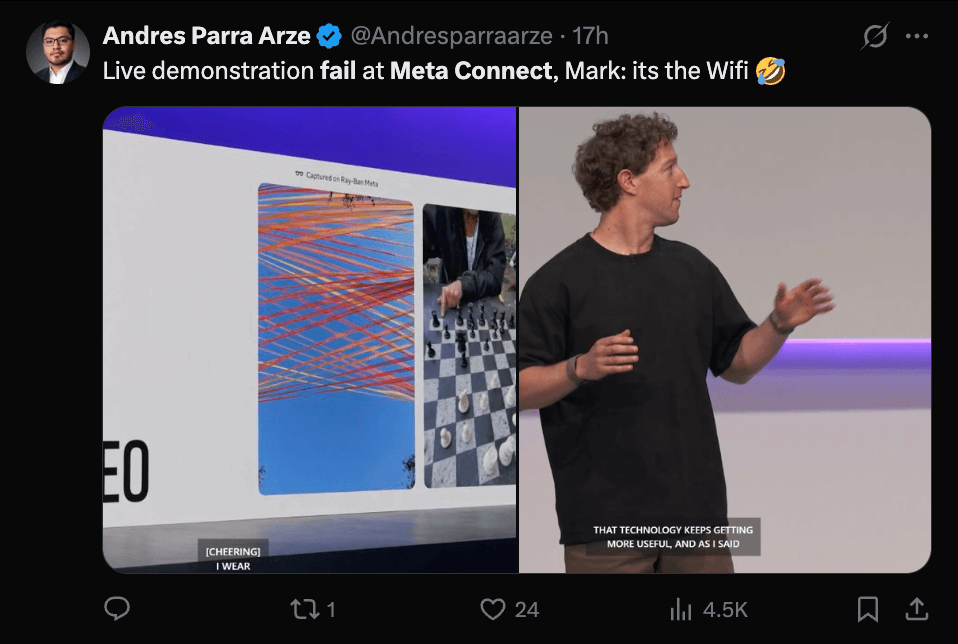
The failed demonstrations became instant meme material across social media platforms. Videos of Zuckerberg's frustrated attempts to make the technology work spread quickly, with users making jokes about the ambitious promises versus disappointing reality.
Popular social media reactions included:
- Clips of the failed neural wristband demo with sarcastic commentary
- Memes about the cooking AI giving useless advice
- Jokes about Meta's excuses for why the technology didn't work
- Skeptical comments questioning whether the glasses were ready for market
But some users also supported Meta, stating that it is common in live events, and what Meta did is actually revolutionary, especially the wristband. Many people are loving the idea of writing anywhere and getting it converted into text on your mobile.
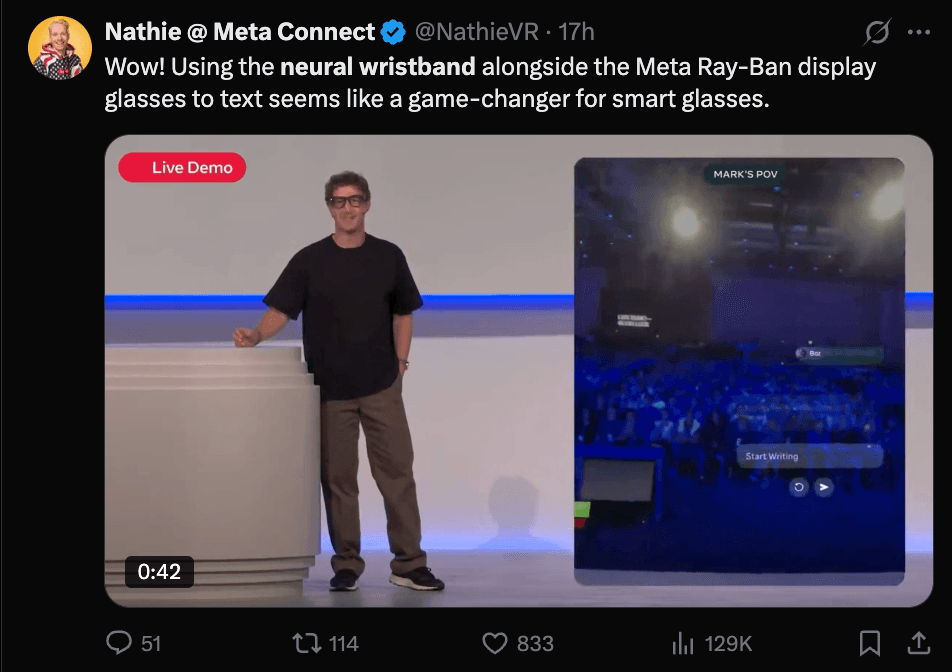
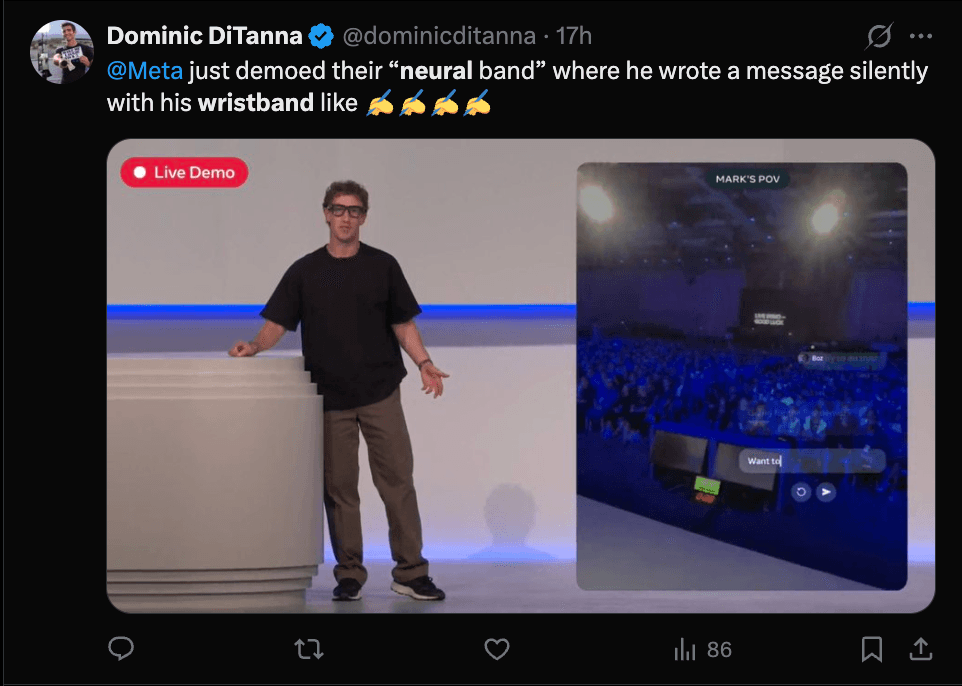
Tech Expert Analysis
Professional reviewers were more measured in their criticism but still pointed out significant problems. Many experts praised the concept of AI-powered glasses but noted that the execution had serious flaws that would prevent mainstream adoption.
Tech analysts identified several key issues:
- Software felt "half-baked" and not ready for consumer use
- High prices would deter most buyers from trying the technology
- Battery life and AI capabilities needed major improvements
- Privacy concerns could create regulatory problems in some countries
Tom’s Guide, for example, found the glasses intriguing but “awkward in public,” and flagged that Meta’s AI sometimes lagged behind user requests.
Business Insider’s coverage of the launch bluntly stated that Meta’s big unveiling was “overshadowed by live demo failures”.
Reuters reported that analysts don’t expect these glasses to sell like hotcakes, given the steep price and niche appeal – the $800 model in particular may only attract hardcore tech enthusiasts, not mainstream buyers.
Indeed, Meta’s own CTO Andrew Bosworth acknowledged the rocky start, expressing that no one was more upset than he was about the onstage misfires and vowing to investigate what went wrong.
The privacy concerns and software issues prove these products aren't ready for mainstream consumers yet. However, many tech enthusiasts recognized the breakthrough potential, especially with the neural wristband that could change how we interact with computers forever. Future generations of these devices will likely solve the current problems and deliver on the impressive promises.

Comments
Your comment has been submitted